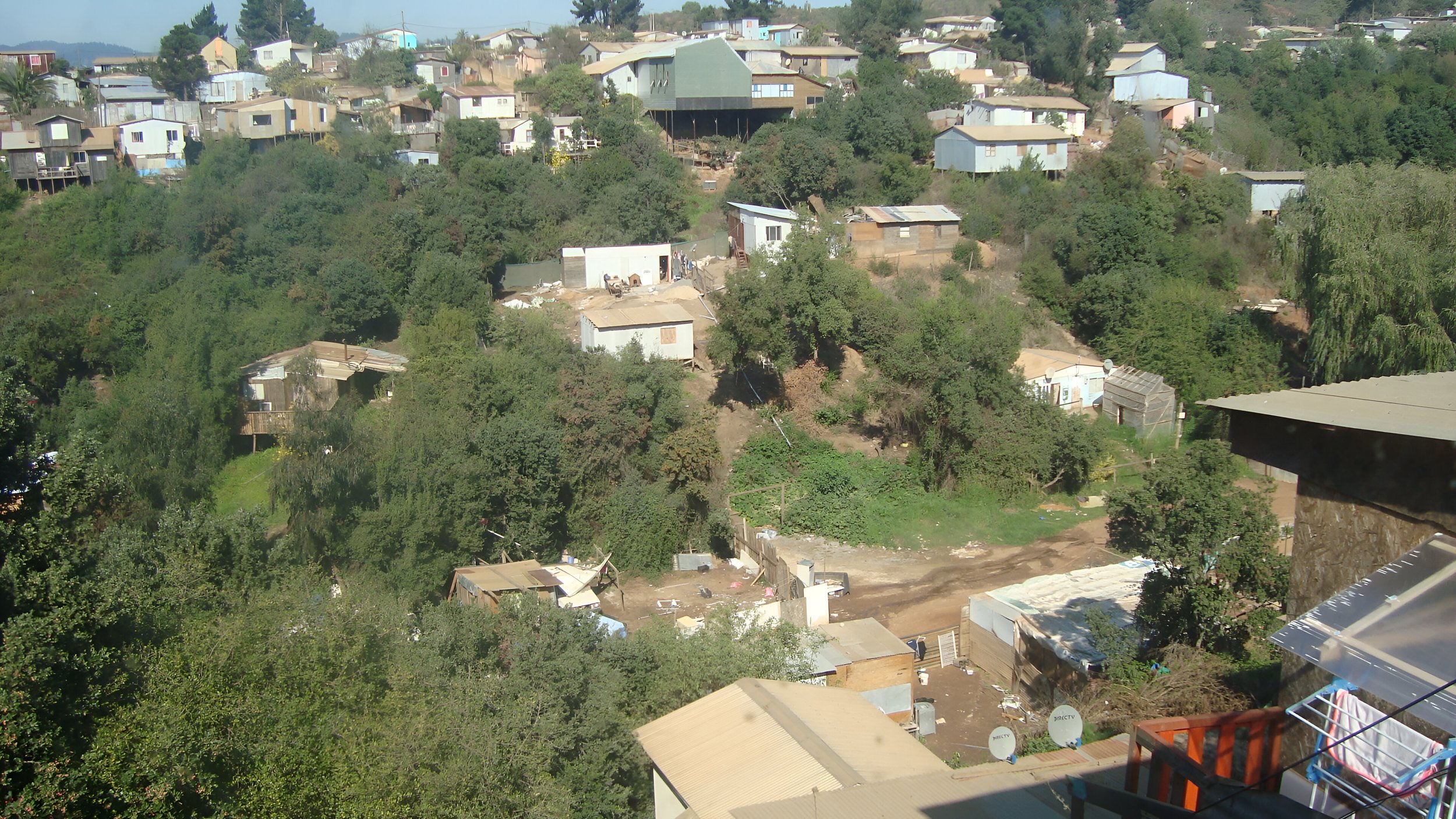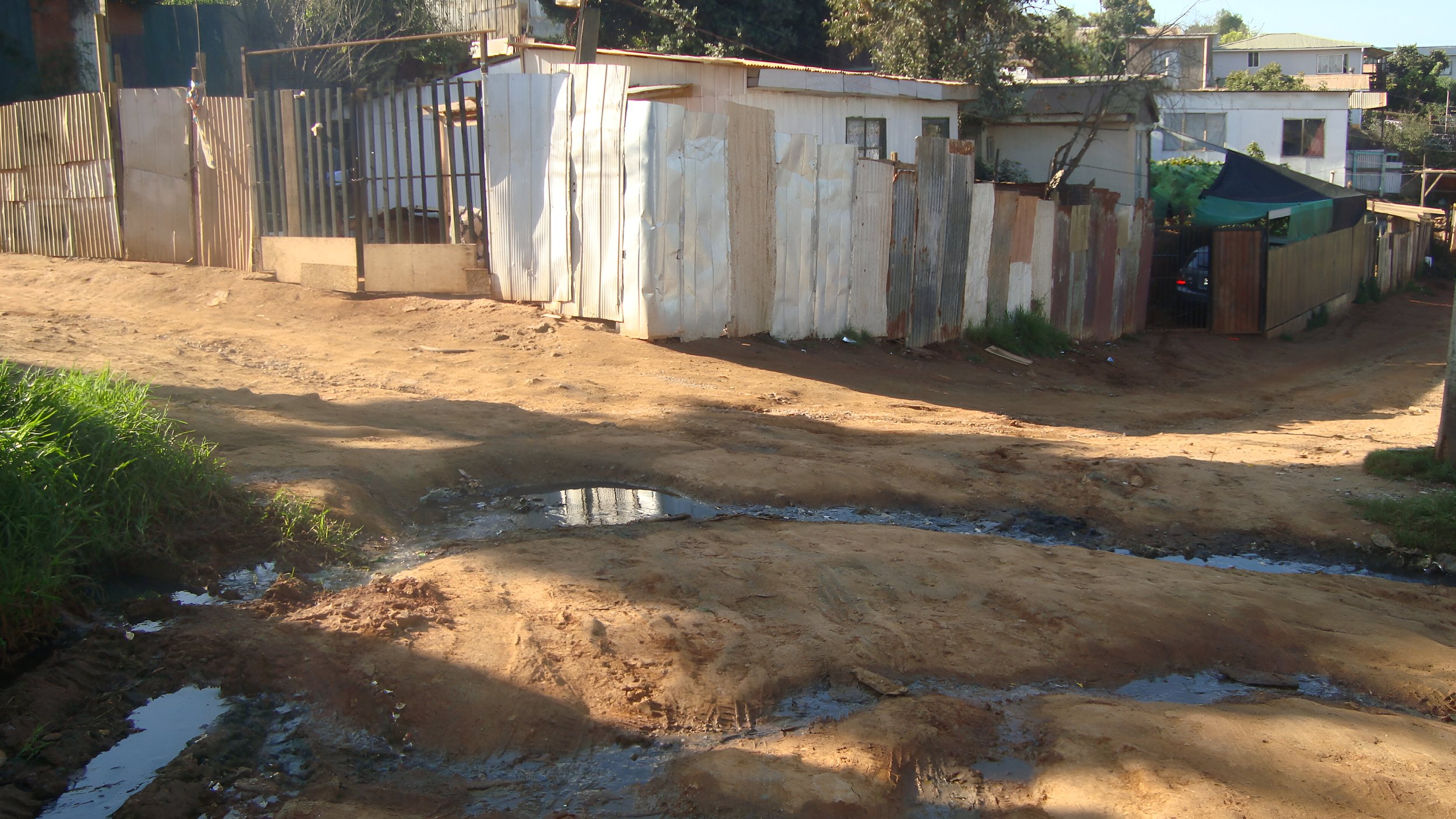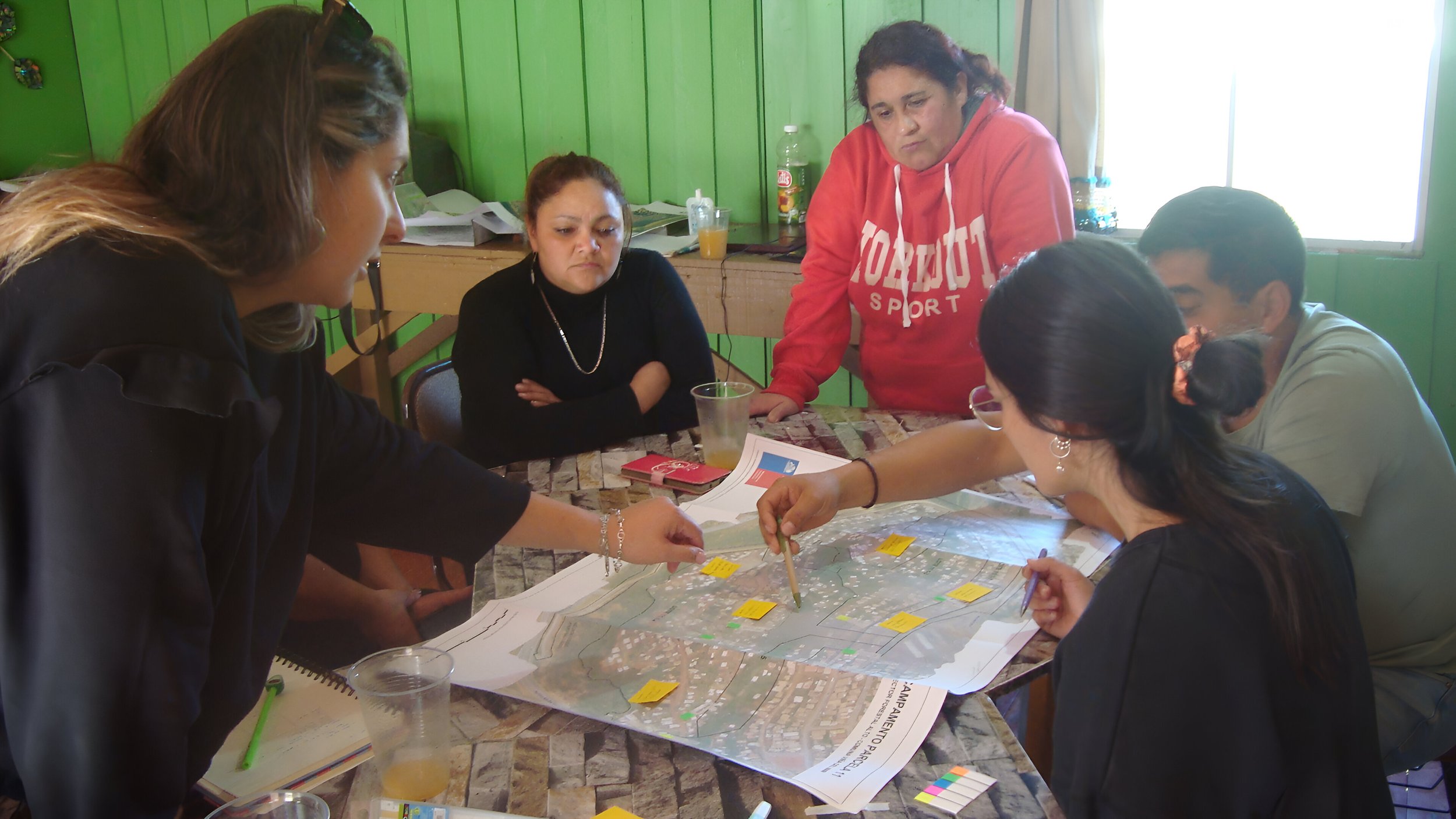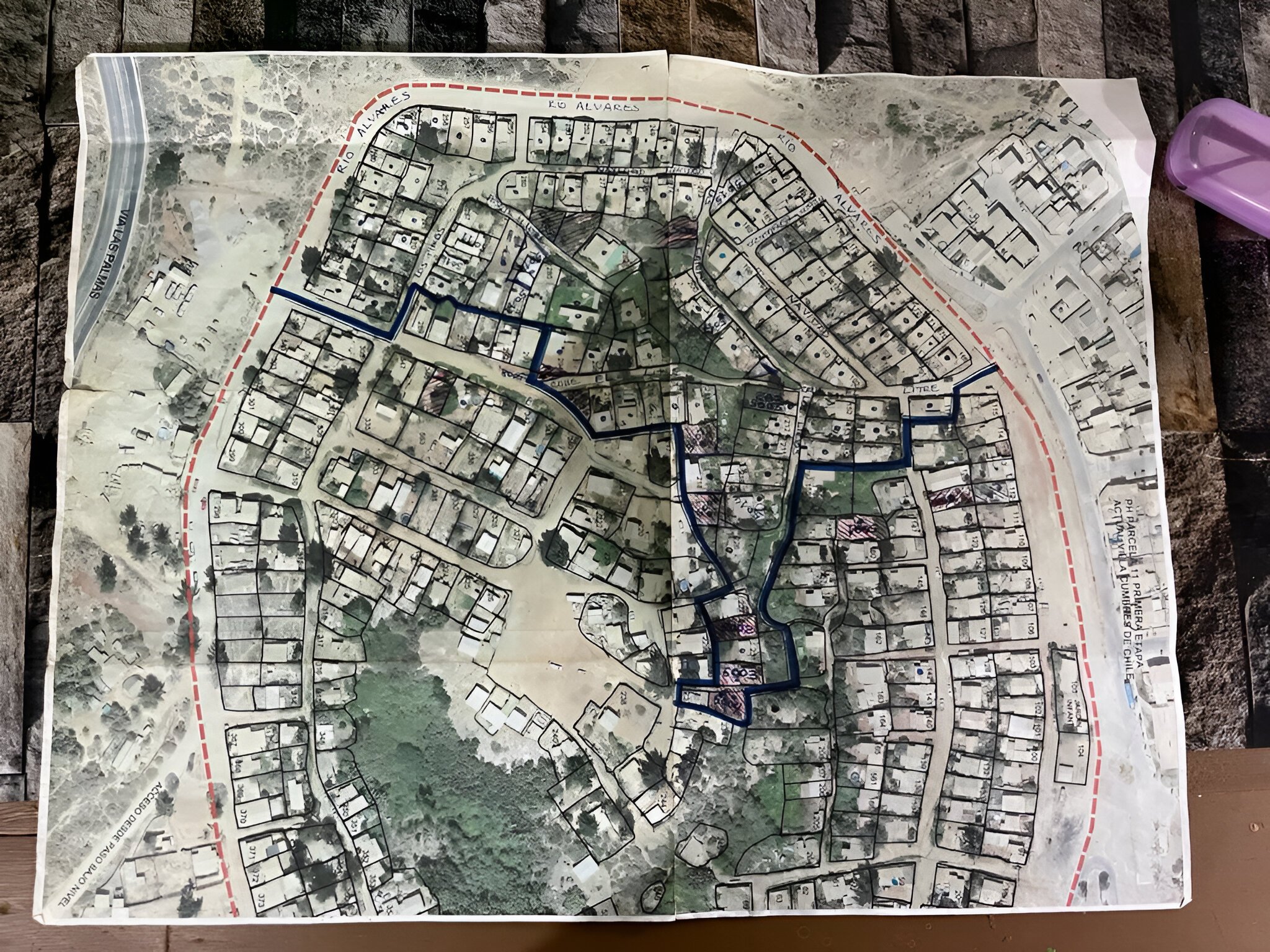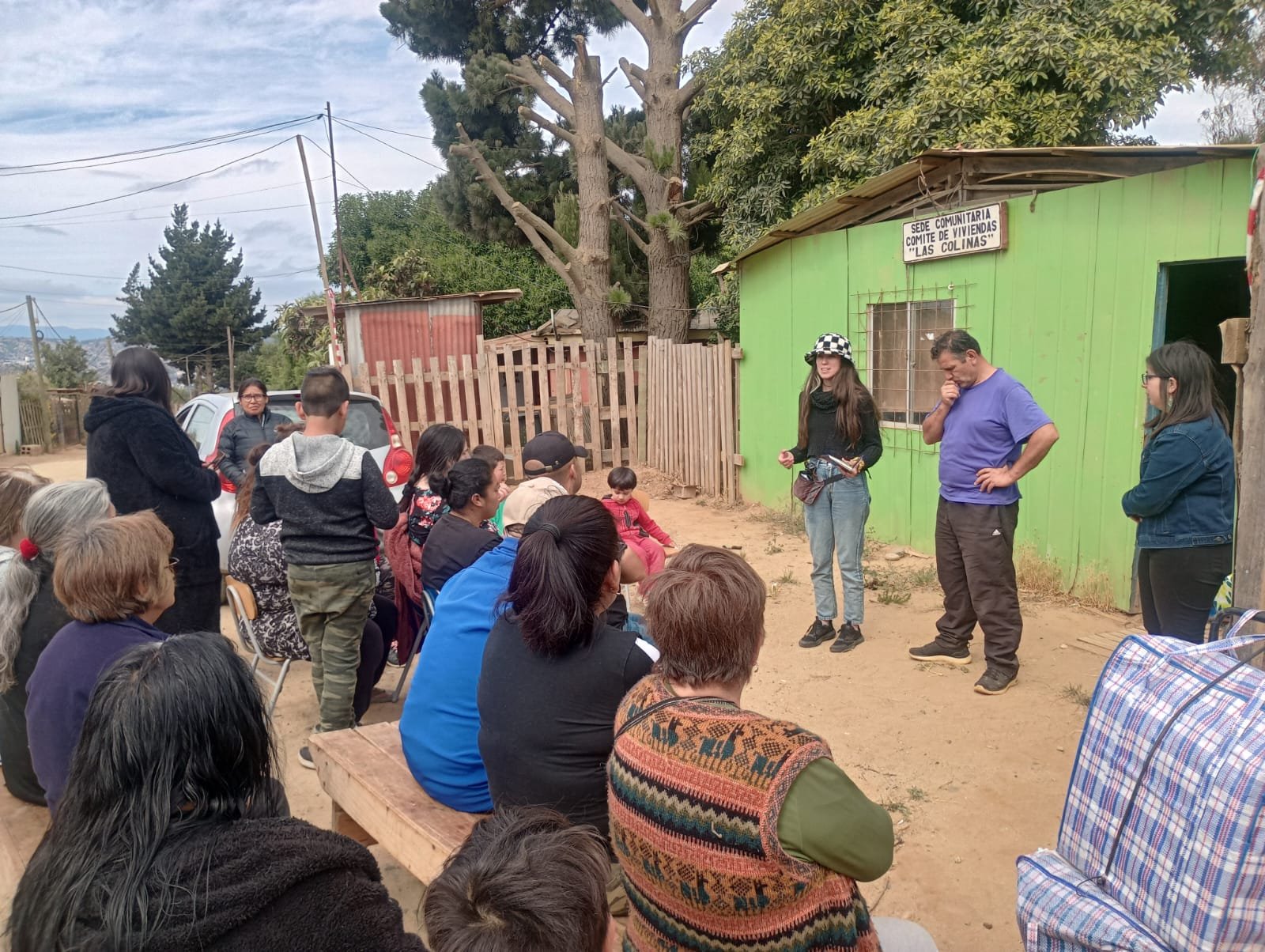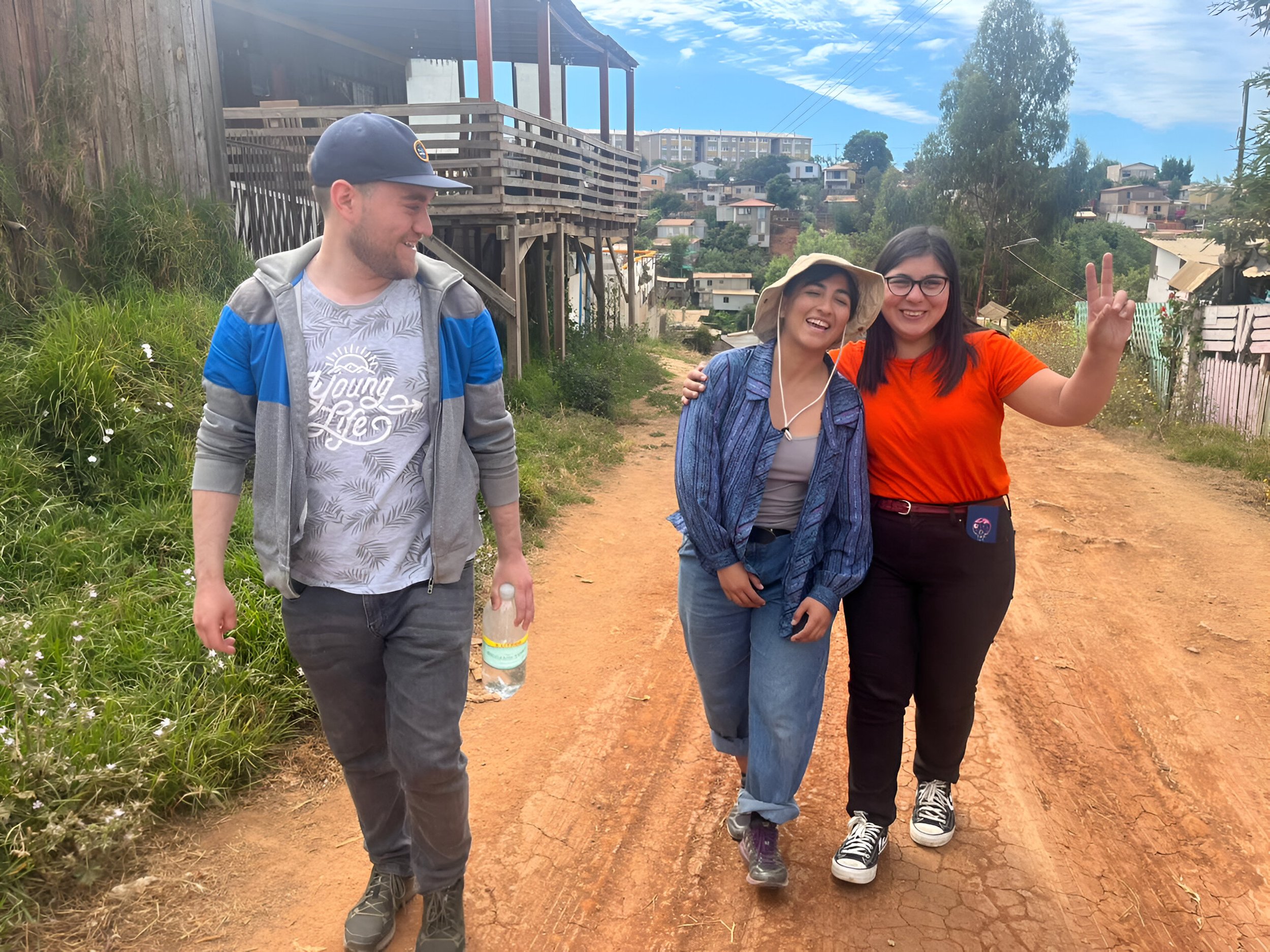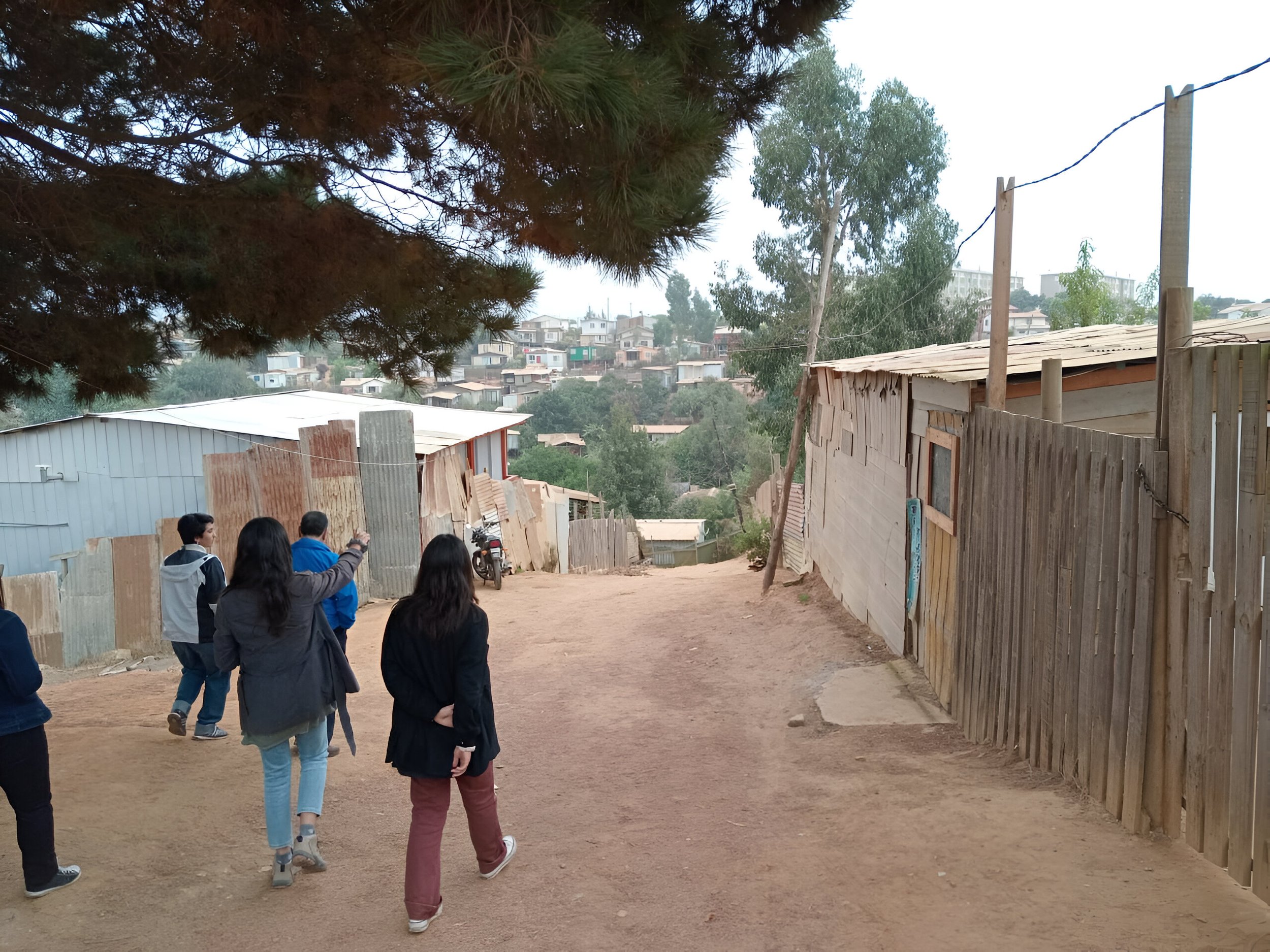Aqua 365 - Water treatment project in Valparaíso
Engineers Without Borders Sweden is grateful for the opportunity for knowledge exchange and collaboration as we leverage our WASH expertise to bolster SDG 6 in Valparaíso. By offering a pilot solution to combat water scarcity and climate-induced flooding, this initiative underscores our commitment to sustainable development in South America and showcases our capacity to devise adaptive responses to environmental challenges.
Purpose of the project
The purpose is to develop a pilot solution and to improve the situation of polluted water of the inhabitants and the environment in Parcela 11, Valparaíso. The Parcela is a so-called occupied land area which is regulated by the state but without the responsibility for building and maintaining infrastructure for the settlers.
The area has been exposed to environmental changes which has caused a significant increase in flooding, leading to polluted drinking water and sickness among the residents. The risk of ill health and environmental pollution will markedly lessen when introducing the planned type of mini-sewage treatment plant. Reclaimed water can be used for irrigation. The solution will also administer the grease spill to separate methane gas to produce biogas and the possibility to use the wells for fire extinction. Storm fires are frequent in the area and greatly affect the communities.
The design will comply with existing technical guidelines and regulations as well as consider social factors such as the preferences and needs of the residents. An installed and evaluated design can immediately begin to be implemented in both the surrounding and similar areas.
Relevance
Water scarcity is a growing problem in many parts of the world, and climate change is worsening the issue (SDG 6 Clean Water and Sanitation).
The Chilean Engineers Without Borders together with several universities have formed the Foundation Valparaiso to address the concerns expressed by residents about the need for improvement of wastewater management, as they lack a sewage system. Measures to rectify the situation are expected to be distant in time.
The quality of life of the inhabitants and the environment in Parcela 11, Valparaíso, has suffered significant deterioration due to the deficient sewage management in the community, covering an area of 28.7 hectares (MINVU, 2022). The exposure to untreated sewage water is leading to health problems and environmental pollution.
The solution gives an increased proportion of green space in the area which is beneficial for the environment.
Target groups
Camp Parcela 11 lies in the Forestal sector, in the upper area of Viña del Mar. It is a territory in an insecure situation, lagging behind because of both its exposed and geographical position. The camp is where the pollution that feeds the rest of the water is located, with successive ravines towards the city plan.
The area is inhabited by 1 310 people from the 9 existing committees.
596 female gender registrations
538 male records
176 records without gender specification
Their main need is related to the treatment of greywater, most houses have cesspools. The problem of these wells is that they collapse when they exceed their capacity often in combination with the water underground systems. The inhabitants are keen to channel the grey- and rainwater to points where it will have a lower environmental impact.
Main activities
To address the water situation EWB Chile and EWB Sweden will conduct a pilot project with a limited number of households. With an evaluation of the pilot and possible further measures, the aim is to launch this solution on a broad front in a roll-out project. EWB Sweden will contribute with the development of the technical solution. During this pilot a design for the management of waste- and possibly also rainwater will be developed, including the administration of grease spill to separate methane gas to produce biogas.
The final design fits the community's needs and complies with current regulations. A last simulation is ongoing to ensure that this design will be the most suitable solution, only small changes are anticipated.
The local group, Camp Parcela 11, provides eight volunteers who are knowledgeable in construction as an in-kind solution to further support the four professions who will be paid.
Risk assessment and Health, Security and Environment, HSE, is crucial in particular regarding flooding and unsecure ground conditions.
The project will include a Monitoring, Evaluation and Learning group for the follow-up work. The evaluation period will be long enough to ascertain all kinds of weather conditions.
Expected impact and results
In terms of volume, it is estimated that a person generates between 50 and 100 litres daily of black water, mainly from toilets and urinals. On the other hand, production from activities such as showering, washing hands and dishes, and laundry, can range from 100 to 150 litres per day. These estimates may vary depending on factors individual and local.
In vulnerable Chilean communities without access to sewage systems, the main ways to manage wastewater include the use of septic tanks, cesspools, and direct disposal in open areas. These options, however, pose challenges in terms of public health and environmental sustainability. Septic tanks require maintenance, cesspools can contaminate soil and groundwater, and direct disposal can spread disease and damage the environment.
The appropriate pilot solution and subsequent upscaling will significantly improve the situation of polluted water.
Implementation, anchorage, and scaling
There are several so-called occupied land areas which are regulated by the state without the responsibility for building and maintaining infrastructure for the settlers. all of those would benefit from this solution.
The solution from this pilot is meant to be used in many areas vulnerable to climate change causing droughts and floods. The development of a practical, durable, easy-to-maintain and cost-effective mini-treatment plant for vulnerable areas is a major step forward. A viable, cost-effective solution to the problem of sewage could be used in many areas and make life easier for both the population and the population.
Organisational capacity
Both EWB Sweden and EWB Chile have a project organisation for this project and the project teams will meet regularly to follow up and assign duties between the members. EWB Chile has a team who has been assigned to the previous work to address water issues through innovative, replicable, and scalable projects in local communities.
EWB Sweden has a competence group within Water, Sanitation and Health, WASH, and one within Energy & Waste to support projects within the area. Both groups have been carrying out projects in different countries for a long time. The project will also include a WASH-expert from engineering consultancy company Ramboll.
Ramboll Foundation is the financial contributor to this pilot project.
To ensure that the project progresses as planned, both the Secretary General of EWB and the Leader for International operations will be involved in the project management and in contact with EWB Chile. Both with broad experience in project management.
The project will contribute to fulfilling the UN SDG 6 - Clean water and sanitation for all, as well as UN SDG 3 - Good health and well-being, and UN SDG 11 - Sustainable cities and societies.
IMAGES FROM THE PROJECT
Photos are from Parcela 11 in Valparaíso. Thank you to ISF Chile and the project team for the photos.
VOICES FROM THE PROJECT
Interview with Community Representative Mrs. Alicia Taris, Community Chair (English subtitles)
Interview with ISF’s Director Álvaro Leguía (with English subtitles)
More information about the project
Links to more information will be added as the project proceeds.







